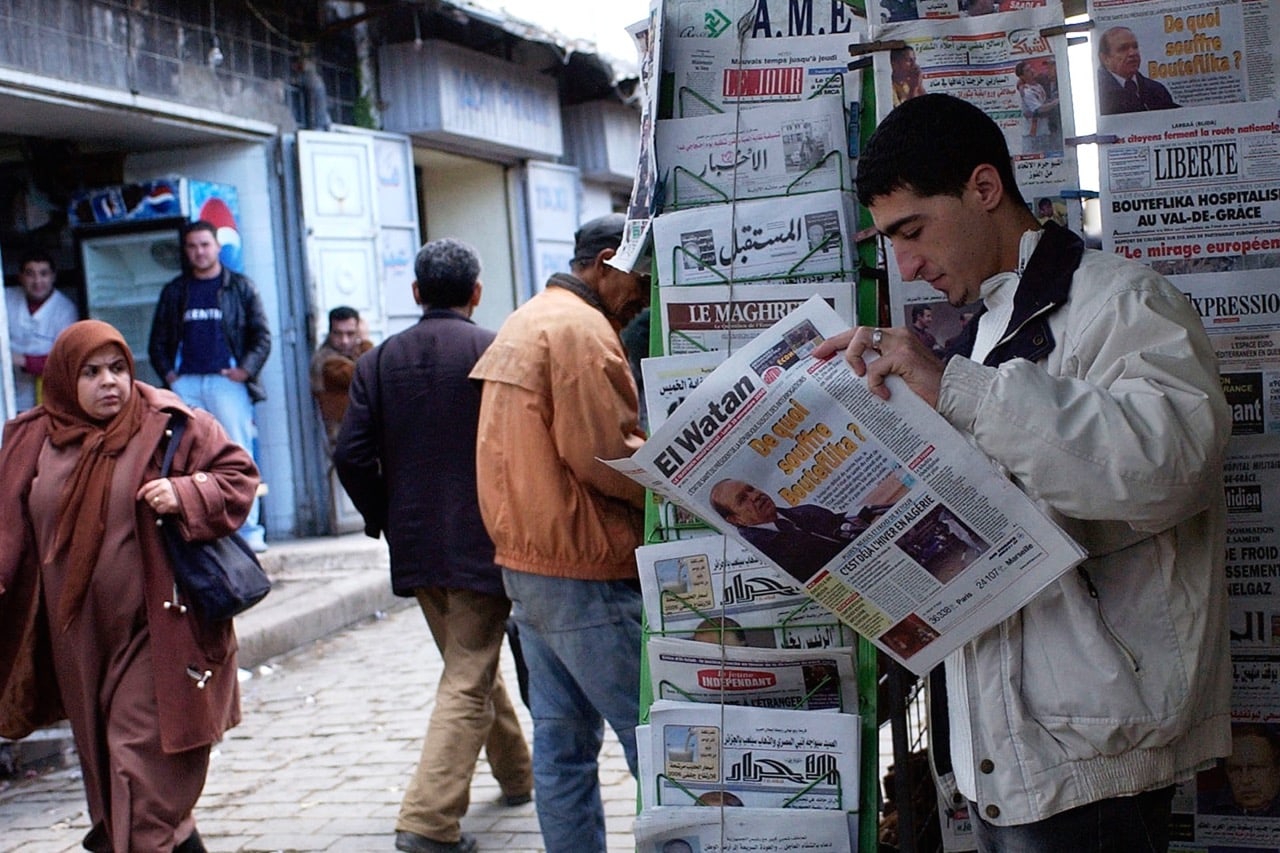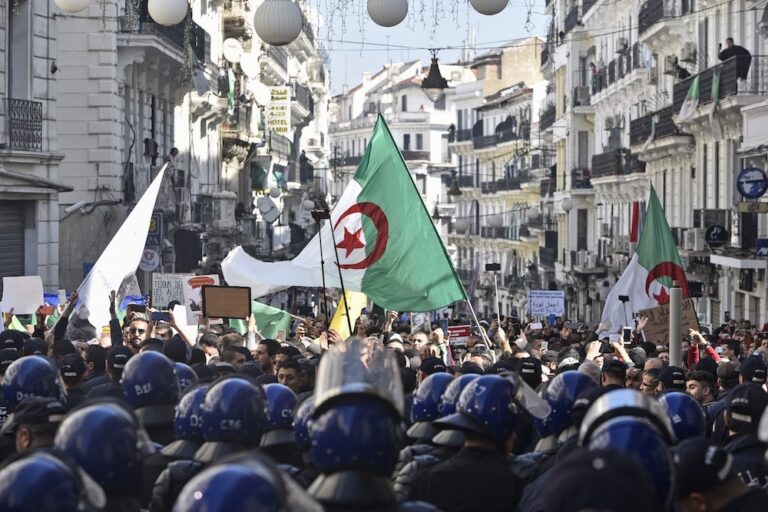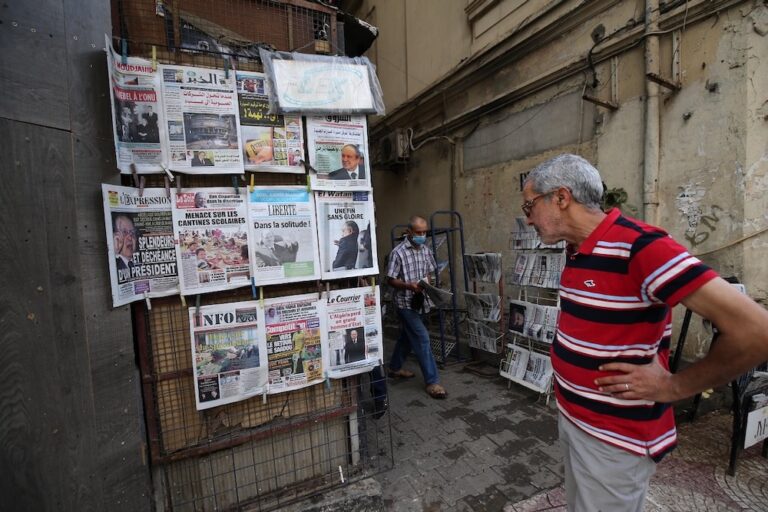Hadda Hazem accuses the Algerian authorities of strangling her Arabic-language newspaper financially and subjecting it to a "slow death."
This statement was originally published on rsf.org on 23 November 2017.
Reporters Without Borders (RSF), the Association Vigilance pour la Démocratie et l’Etat civique and the Tunis Centre for Press Freedom (CTLP) condemn the withdrawal of state advertising from the Algerian daily Al-Fadjr and voice their support for its editor Hadda Hazem, who began a hunger strike on 13 November 2017 in protest.
Hazem, who had to suspend her hunger strike on 20 November for health reasons, accuses the Algerian authorities of strangling her Arabic-language newspaper financially and subjecting it to a “slow death.”
Al-Fadjr was deprived of state advertising, one of the main sources of income for the media in Algeria, more than three months ago, after Hazem criticized a letter from President Abdelaziz Bouteflika to his prime minister during an appearance on the French TV news channel France 24 on 9 August.
ANEP, the state agency in charge of allocating state advertising, reacted by withdrawing its ads from Al-Fadjr. The loss of income forced the newspaper to reduce its print run, reduce the number of pages in each issue and finally to stop producing a print issue altogether.
Al-Fadjr now only appears online and has had to go into debt in order to pay its journalists their salaries. Hazem began her hunger strike in protest against “the government’s decision to punish me.”
“I have been fighting for more than 15 years for media freedom and independence,” Hazem told RSF, the Association Vigilance pour la Démocratie et l’Etat civique and CTLP. “But the pressure has become unbearable and this hunger strike, which could put my life in danger, is now the only solution.”
“We condemn this punishment, which amounts to a sentence to death by strangulation for Al-Fadjr and which has forced its editor, Hadda Hazem, to use extreme methods to make her voice heard,” RSF, the Association Vigilance pour la Démocratie et l’Etat civique and CTLP said.
“Al-Fadjr is a respected newspaper, the first to be created by a woman journalist in Algeria, one she has been running against all odds for 17 years. We urge the Algerian authorities, who keep on undermining the privately-owned media, to lift this economic embargo without delay.”
In 2014, the state-owned company that had been printing Al-Fadjr ceased to do so after an editorial by Hazem criticized that possibility that President Bouteflika would seek a fourth term.
ANEP refused to answer any questions about its boycott of Al-Fadjr when contacted by RSF, the Association Vigilance pour la Démocratie et l’Etat civique and CTLP/
The agency has complete discretion over how state advertising is allocated to the media. Newspapers that criticize the government such as El Watan and El Khabar have been denied state advertising since the 1990s.
Algeria is ranked 134th out of 180 countries in RSF’s 2017 World Press Freedom Index.



